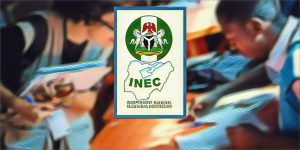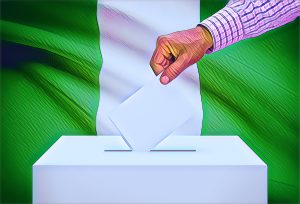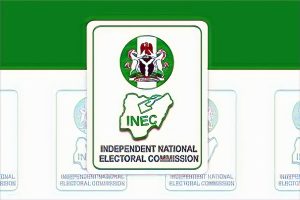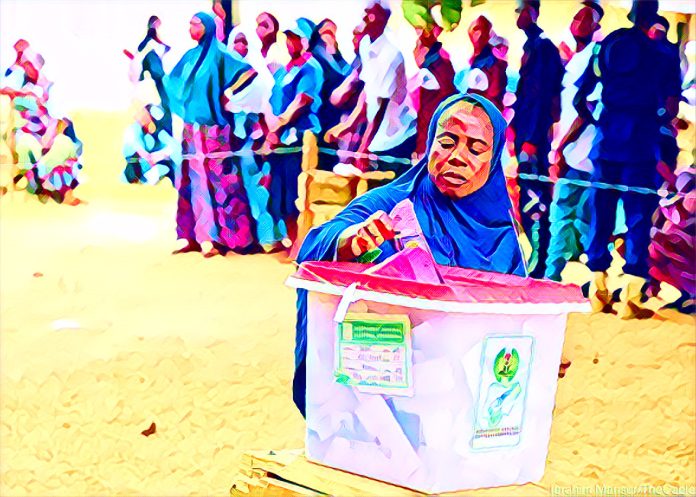KEY POINTS
- Electoral reforms like the 2016 Electoral Act have strengthened Nigeria’s voting system through stricter penalties and improved registration timelines.
- Electoral violence, logistical issues, and judicial overturns pose critical challenges undermining public confidence in Nigeria’s democratic processes.
- Technology adoption, voter education, and institutional capacity building present significant opportunities for enhancing electoral transparency and efficiency.
Nigeria’s election system has evolved significantly over the years, reflecting both progress and persistent challenges.
As Africa’s most populous nation and largest democracy, the integrity of Nigeria’s electoral process is crucial not just for its domestic stability but also for its influence across the continent.

Let’s explore the strengths, weaknesses, opportunities, and challenges within Nigeria’s electoral system, shedding light on key areas of progress and aspects that demand improvement.
Strengths
Electoral reforms
The introduction of the Electoral Act (Amendment) Bill in 2016 marked a pivotal step in reforming Nigeria’s electoral landscape.

This legislation sought to streamline the electoral process by reducing the time frame for voter registration and implementing stricter penalties for electoral offenses.
By increasing fines and prison terms for acts such as vote-buying and ballot stuffing, the law underscored the government’s commitment to curbing malpractice.

These reforms have helped establish a legal framework aimed at improving transparency and accountability, setting the stage for more credible elections.
Independent National Electoral Commission (INEC)
The Independent National Electoral Commission (INEC) has played a critical role in advancing Nigeria’s election system, including bye-elections.
Notable innovations include the deployment of smart card readers for voter accreditation, which has significantly reduced incidents of impersonation and inflated voter numbers.

INEC’s emphasis on leveraging technology has strengthened the integrity of the electoral process, ensuring that results more accurately reflect the will of the electorate.
Furthermore, INEC’s consistent voter education campaigns and engagement with civil society organizations have bolstered its credibility as a central player in Nigeria’s democratic journey.
Increased voter participation
Recent years have witnessed encouraging signs of increased voter participation, indicative of growing public trust in the electoral process.
During the 2019 general election, Nigeria recorded a significant voter turnout, with millions of citizens actively engaging in their civic duties.
This heightened involvement can be attributed to improved access to voter registration and a collective awareness of the importance of political participation.
While challenges remain, this upward trend in voter engagement underscores the potential for Nigeria’s democracy to thrive.
Weaknesses
Electoral violence and malpractices
Despite the strides made in reforming Nigeria’s electoral system, the prevalence of violence and malpractice continues to mar the process.
Instances of vote-buying, ballot stuffing, and the intimidation of voters and electoral officials remain widespread.
Electoral violence—often orchestrated by political actors seeking to manipulate outcomes—undermines the credibility of elections and erodes public confidence in democratic institutions. Addressing these issues requires concerted efforts from law enforcement, political stakeholders, and civil society organizations.
Institutional weaknesses
Institutional deficiencies present another significant obstacle to Nigeria’s electoral integrity. Inadequate funding, logistical bottlenecks, and insufficient training for electoral officials frequently disrupt the smooth conduct of elections.
These weaknesses not only impede the efficiency of the process but also create opportunities for malpractice.
For instance, delayed delivery of election materials and poorly trained staff contribute to errors and irregularities that can delegitimize results. Strengthening institutional capacity is vital to ensuring that the electoral system operates effectively and fairly.
Judicial intervention
Judicial intervention has become a defining feature of Nigeria’s electoral system, with courts frequently overturning election results.
While the judiciary’s role in addressing grievances is essential for upholding justice, the frequency of such interventions raises concerns about the reliability of the initial electoral outcomes.
Prolonged legal disputes often delay the implementation of governance mandates, fostering political instability. Ensuring the credibility of elections at the outset is crucial to reducing dependence on judicial remedies.
Opportunities
The evolving nature of Nigeria’s electoral system presents opportunities for continued reform. By addressing existing weaknesses, policymakers can build on the foundation laid by earlier legislation.
Expanding the scope of electoral reforms to include measures such as campaign finance transparency and stricter enforcement of electoral laws can enhance the system’s integrity. Collaboration with international partners and regional organizations can also provide valuable insights and resources for strengthening the democratic process.
Increased use of technology
Technology offers immense potential for transforming Nigeria’s electoral landscape. Innovations such as electronic voting and biometric voter registration can streamline processes, reduce human error, and enhance transparency.
Pilot programs testing these technologies have shown promising results, indicating their potential for nationwide implementation.
Embracing digital solutions also aligns with global trends, positioning Nigeria as a leader in adopting cutting-edge practices to strengthen democracy.
Empowering citizens through voter education is a critical avenue for fostering greater electoral integrity.
Enhanced civic engagement initiatives can demystify the electoral process, encouraging informed participation while discouraging malpractices.
Partnerships between INEC, civil society organizations, and the media can amplify efforts to educate voters about their rights and responsibilities, ultimately strengthening the democratic fabric of the nation.
Challenges
Security challenges
The security environment in Nigeria poses significant threats to the electoral process. Issues such as terrorism, kidnapping, and election-related violence disrupt voting and deter participation.
Ensuring the safety of voters, electoral officials, and materials is a pressing concern that requires coordinated efforts between security agencies and election management bodies. Addressing these challenges is imperative to fostering an environment conducive to free and fair elections.
Institutional capacity
The need for robust institutional capacity cannot be overstated. Adequate funding, efficient logistics, and comprehensive training programs for electoral officials are essential components of a credible electoral system.
Strengthening these areas will not only improve operational efficiency but also boost public confidence in the system’s ability to deliver fair outcomes.
Political interference
Political interference remains a persistent challenge to Nigeria’s electoral integrity. Efforts by political actors to manipulate the process—whether through undue influence on electoral bodies or attempts to sway judicial outcomes—undermine democratic principles. Establishing safeguards to insulate the electoral system from political meddling is critical to preserving its independence and credibility.
Nigeria’s electoral system represents both progress and ongoing challenges. While reforms and technological advancements have strengthened the process, issues such as violence, institutional weaknesses, and political interference require sustained attention.
By embracing opportunities for reform, leveraging technology, and addressing security and institutional challenges, Nigeria can continue its journey toward a more robust and credible electoral system.
The future of Nigeria’s democracy depends on the collective efforts of its institutions, citizens, and leaders to safeguard the integrity of its elections.



